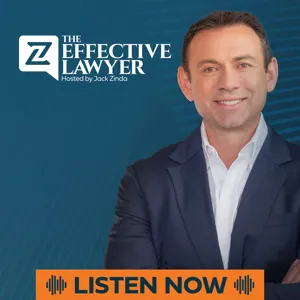Predicting Value: Evaluating Tough Liability Cases

Summary
In this episode, Zinda Law Group CEO and founder, Jack Zinda talks about liability cases and the best practices for evaluating them.
Discussed in this Episode:
- What is the upside?
- Assuming it goes to trial
- Your theory of the case
- The odds of success
What is the Upside?
In order to prevent ourselves from wasting valuable time and money, we need to evaluate each case step by step. Let’s start with the most obvious question: what is the upside? Before spending any time researching the case, you’ve got to make sure that there’s value there.
Assume it goes to Trial
Though it may look simple on the outside, assuming that each case will go all the way to trial will save you from losing time and money on the backend. By setting worst-case expectations, you will often find that you’re rarely put in a situation that isn’t profitable.
Your Theory of the Case
Look at the case and imagine your best outcome. Of the things you don’t know, what do you want them to be? By narrowing your focus to the few pieces of information you’d require to take on the case, it will be easier to evaluate.
The Odds of Success
Take all of the data that you’ve collected and make a determination based on similar cases you or other colleagues have had. Calculating the odds or percentage of success should give you a really good idea of whether the case is worth taking or not.
You can reach Jack at:
512-246-2224